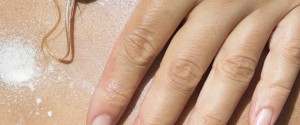Determine Your Skin Type

When it comes to looking after your skin, it is extremely important to know what type of skin you have. A painter wouldn’t paint without first deciding whether the paint he is using fits the medium. It is exactly the same when it comes to skin. If you don’t know your skin type, you can’t know what kind of skin care products to use. You may be using a product that is potentially harmful to your skin without evening knowing it. Thus, it is essential that you determine your skin type before you start a maintenance routine.
Who is it good for?
Determining your skin type is good for absolutely everyone. It is important, however, to constantly check and update your skin type.
What your skin was like when you were a teenager, for example, may be different than the way it is when you are an adult or a senior. Knowing that your skin type will change can help you to change your products accordingly, ensuring that you are always getting the best treatment and protection. Skin types vary according to a number of factors, including sensitivity level, oil content, and water content.
Compare
So what are the different skin types? The first is normal skin. It isn’t too oily or too dry, and has a radiant complexion, barely visible pores, no strong sensitivity, and few imperfections. If you have this skin type, it is important to maintain it by using sunscreen and other moisturizers. A combination skin type can be oily in some areas, such as the chin, forehead, and nose, but perfectly normal in other areas. A combination skin type is one of the most typical skin types. Dry skin is another prevalent type. Dry skin can produce more visible lines, less elasticity, red patches, a rough complexion, and almost invisible pores. It is also prone to becoming inflamed, irritated, or itchy, and may crack or peel. Oily skin types are common among teenagers and are one of the main reasons behind pimples, blackheads, and other blemishes. Oily skin can be made worse by a number of factors, including exposure to heat, stress, and puberty. Sensitive is another skin type. Whether you have sensitive skin depends on how your skin responds to certain products. It is important to identify whether you have sensitive skin before you buy a skin care products. Sensitive skin can manifest as dryness, burning, itching, or redness. If you have dry skin, avoid scrubbing while bathing, and use a gentle soap as opposed to a deodorizing soap. Make sure to use a humidifier and apply a rich moisturizer after you take a shower or bath. Regardless of your skin type, always make sure you moisturize your skin, and wash your skin thoroughly every day. If you wear makeup, always make sure you remove it before you go to bed. Make sure you stay hydrated and use sunscreen whenever you go outside to prevent harmful UV rays from damaging your skin.





